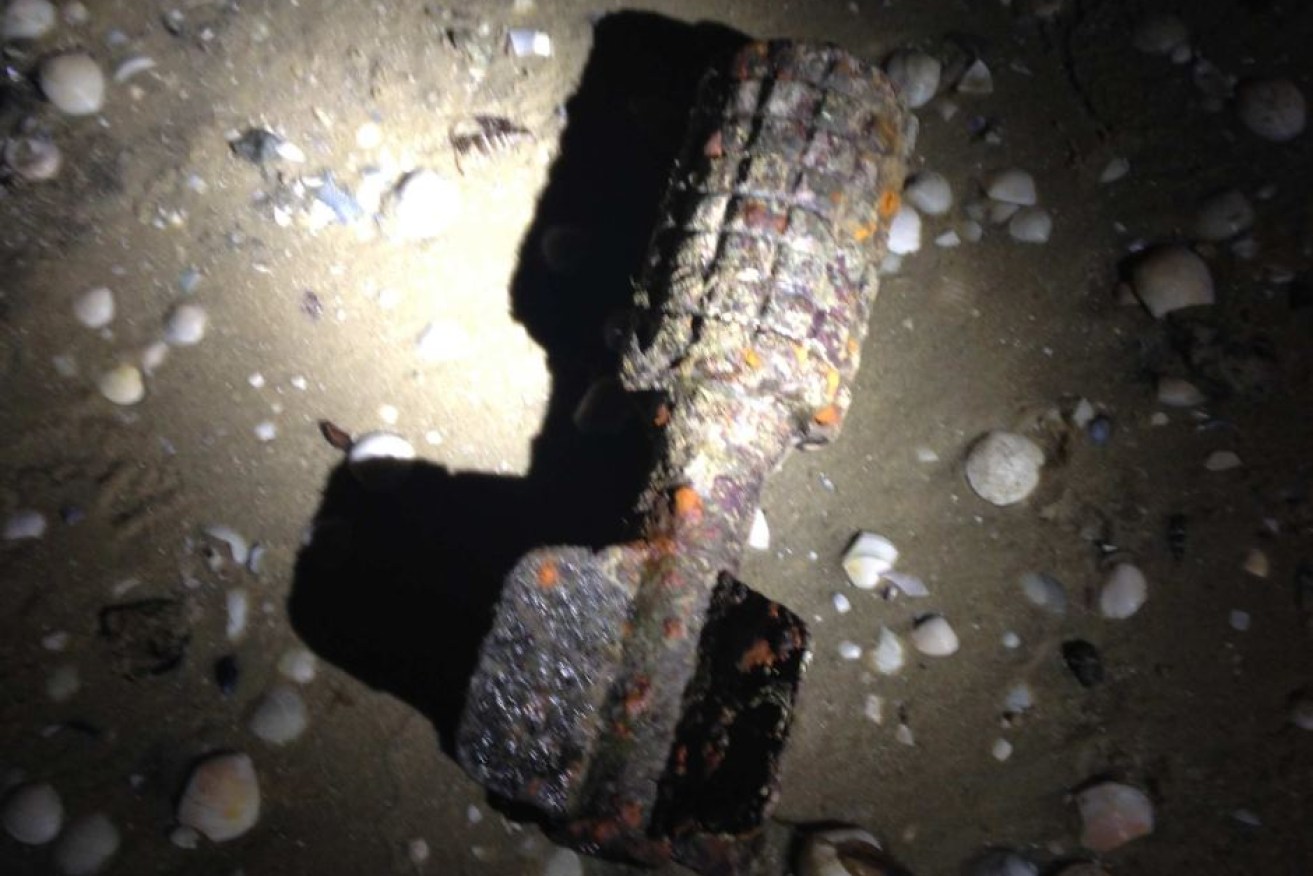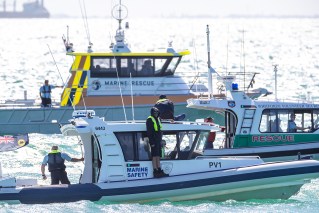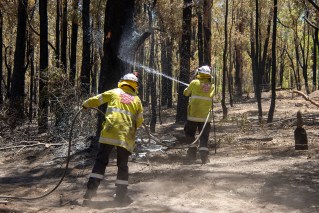World War I-era German grenade found in Perth

WA Police
An unexploded World War I grenade has been found by a fisherman in the Swan River.
The fisherman dragged in the 300-millimetre-long device while fishing off the Applecross jetty early on Tuesday morning.
It had fins and a bulbous head, but no fuse.
• Aussie adventurer attempts new Antarctic record
• Bill Gates wishes he learnt a second language
The bomb squad and Navy experts identified it as a 1915 German Wurfgranate.
The jetty was cordoned off during the night but has since reopened to the public.
The device was taken away for disposal by the Navy.
A spokesman for the Arms and Armour Society with the Army Museum, Barry Lathwell, said it was certainly an unusual find.
“Those WWI devices are very, very rare,” he said.
“I would doubt that there are many of those that would have been brought back. They are not very common at all.
“It would have been a bring-back by one of our soldiers after World War I and then he most probably got cold feet and threw it off the jetty I would suggest.
“If they are still alive, they are very dangerous. It would have to be deactivated or destroyed by the army.”
Quiet but lethal weapon in trench warfare
Australian War Memorial WWI gallery curator Nick Fletcher described the find as unusual.
“I don’t imagine that very large numbers of them were brought back to Australia, although Australians did souvenir any and everything during the first World War so many, many things came back to Australia,” he said.
“But I certainly haven’t seen anything of German first World War origin turn up for many years, let alone one of these Wurfgranates which were never terribly common.”
Mr Fletcher said the grenades were in use for a relatively short period between 1915 and 1918, contributing to their rarity.
“They became much less useful in 1918 when trench warfare more or less dried up, the warfare became much more open.
“These weapons, which were very, very useful when you were fighting in a trench with a trench opposite you, you could set these things up quite accurately to fire into the enemy’s trench, by 1918 they weren’t in such heavy use.
“Trenches weren’t occupied for such a long time, fighting tended to be more from one position to another, it was much more a war of movement.”
A Perth fisherman hooked a dud overnight, pulling an unexploded 1915 German grenade from the Swan River while fishing in Applecross
— Dougal Wallace (@DougalWallace) February 23, 2015
Mr Fletcher said the grenade was silent but deadly.
“It weighs about two-and-a-half kilograms, and when it explodes, you can see the serrations on the outside of the casing, they will tend to make it break into small, jagged splinters which are obviously going to be quite lethal to anyone who was close to them,” he said.
“They were quite a deadly weapon and they didn’t make a lot of noise, you didn’t hear a big bang as they were fired from the German lines.
“In fact the Allied troops sometimes referred to them as doves because the sound they made.
“The tail fins as they rotated made a sort of a rustling noise like the wings of a bird, so they weren’t a noisy weapon but quite lethal if you happened to be in the wrong place.”
Mr Lathwell urged people with ordnance they no longer wanted or deemed not to be safe to call the authorities to dispose of it rather than discarding it in a public space.
“I think if people want to dispose of them they should give them to the authorities to get rid of them.
“Do it properly because they are quite dangerous and you could end up getting hurt.”
– ABC







